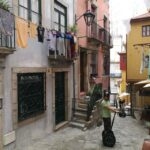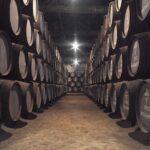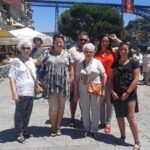If you’re curious about Portugal’s wine heritage beyond the well-known regions, a visit to the Cella Vinaria Antiqua offers a fascinating glimpse into ancient winemaking methods. This short, 30-minute guided tour in the Beja District allows you to step back in time and explore a winery that’s been carefully restored to showcase traditional techniques—particularly the use of clay amphorae, or Talhas, for fermenting wine.
What makes this experience stand out? First, we appreciate the authentic atmosphere that blends history with hands-on storytelling. Second, the Talha wine tasting provides a genuine taste of regional tradition. But, keep in mind, with a tour lasting just around half an hour, it’s more about the quality of insights than a full-scale winery visit. This experience suits travelers seeking a quick, meaningful connection to Portuguese wine history—especially those interested in ancient techniques or Roman influence.
Key Points
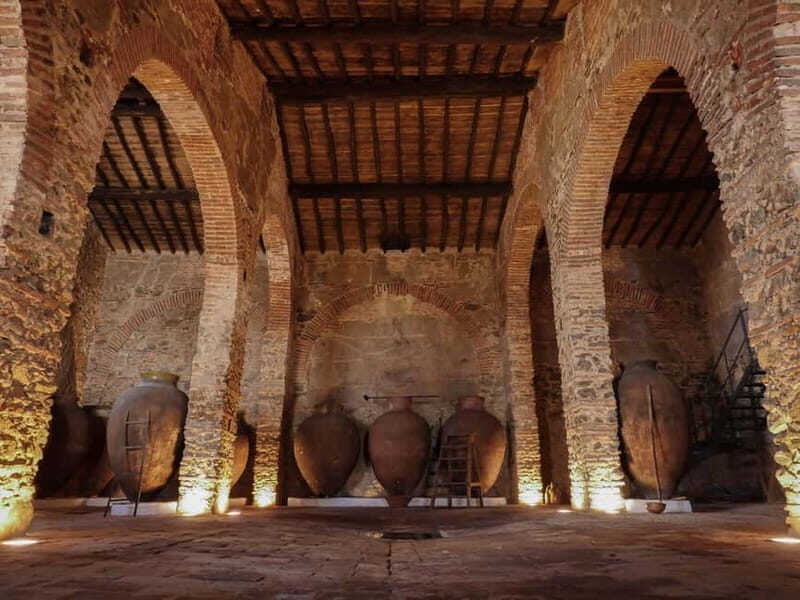
- Authentic historical context: Learn about the Roman-inspired tradition of Talha wine.
- Short but rich experience: Perfect for a quick cultural fix, lasting around 30 minutes.
- Tasting included: Sample traditional Talha wine to connect with the region’s heritage.
- Accessible for all: The tour is wheelchair accessible and available in multiple languages.
- Flexible booking: Cancel up to 24 hours in advance or reserve now and pay later.
- Unique setting: Tour takes place in a centuries-old winery-museum with a fascinating history.
An In-Depth Look at the Cella Vinaria Antiqua Experience
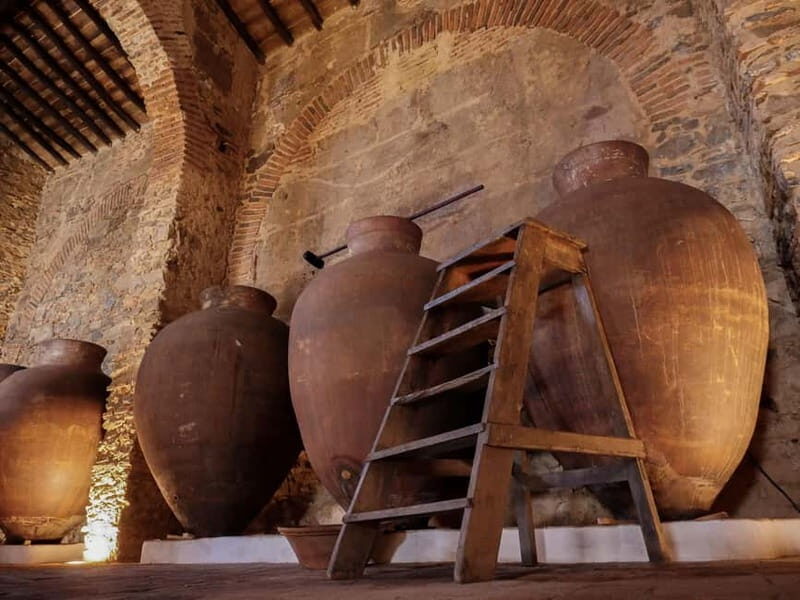
You can also read our reviews of more guided tours in Portugal
The Setting: A Winery With a Story
From the moment you arrive at Adega-Museu Cella Vinaria Antiqua, you’re greeted with an atmosphere that whispers of centuries past. This is not a shiny, modern wine cellar but a restored Roman-inspired building that has been carefully preserved or reconstructed to reflect traditional winemaking methods. One reviewer noted that the site was uncovered after working on an abandoned warehouse, revealing its historical roots. You’ll feel the weight of history as you walk through the space, with old tools, vessels, and architectural details that carry stories of generations of vintners.
The building’s architecture itself plays a starring role—imposing, yet inviting—adding to the sense of stepping into a living museum. This atmosphere ensures that your visit feels genuine and rooted in tradition, making it more than just another wine tasting.
The Tour: What You Can Expect
The guided tour typically lasts around 20 minutes, which is short but packed with information. Your guide will explain the history of Talha wine, emphasizing its Roman origins and significance in the Alentejo region. You will learn about how ancient winemakers used clay amphorae (Talhas) for fermentation and aging, a method that continues to be valued for its ability to produce distinctive wines.
The guide points out various pieces and objects—some dating back centuries—that illustrate the region’s deep connection with wine. You’ll also hear stories about how the building itself was uncovered, turning what was once an abandoned warehouse into a site of cultural preservation.
What makes this particularly engaging is the detailed explanation of the entire process: from grape selection, fermentation, and aging in Talhas, to how these methods differ from modern techniques. This offers a rare insight into ancestral winemaking methods that have been passed down through generations.
The Talha Wine Tasting: Authentic Flavors
After the tour, the experience culminates in a simple tasting of Talha wine. This is not a commercial winery tasting with multiple wines; rather, it’s a sincere opportunity to taste a wine crafted using traditional methods. Several visitors have commented that this tasting provides a “taste of history”—a direct link to the region’s oenological past.
The wine’s flavor profile is often described as more earthy and robust compared to modern wines, thanks to the natural fermentation in clay. You might find this a refreshing change from overly polished commercial wines and a window into regional authenticity.
More Great Tours NearbyPracticalities: What You Should Know
- Duration: A total of about 30 minutes, making it easy to fit into a day of sightseeing.
- Availability: Check ahead for starting times, as they vary.
- Languages: Guides speak Portuguese, English, and Spanish, making it accessible for international visitors.
- Accessibility: The tour is wheelchair accessible, which is appreciated for inclusivity.
- Cost: Given the short duration and inclusion of a tasting, the price presents good value for a niche cultural experience.
- Reservation: You can reserve without paying immediately, or cancel free of charge up to 24 hours in advance—flexibility that’s often appreciated.
You can also read our reviews of more museum experiences in Portugal
Additional Insight from Reviews
Many visitors raved about the authenticity of the experience. One said, “You come away feeling like you’ve stepped into a different era, with a real understanding of how deeply wine is woven into the local culture.” Others appreciated the friendly, knowledgeable guides who clearly love sharing their heritage.
A few mentioned that the experience is quite focused and concise—perfect if you want a quick but meaningful cultural stop. Some noted that the tasting, while simple, was a highlight because it connected the story to a real flavor, making it memorable.
Who Should Consider This Tour?
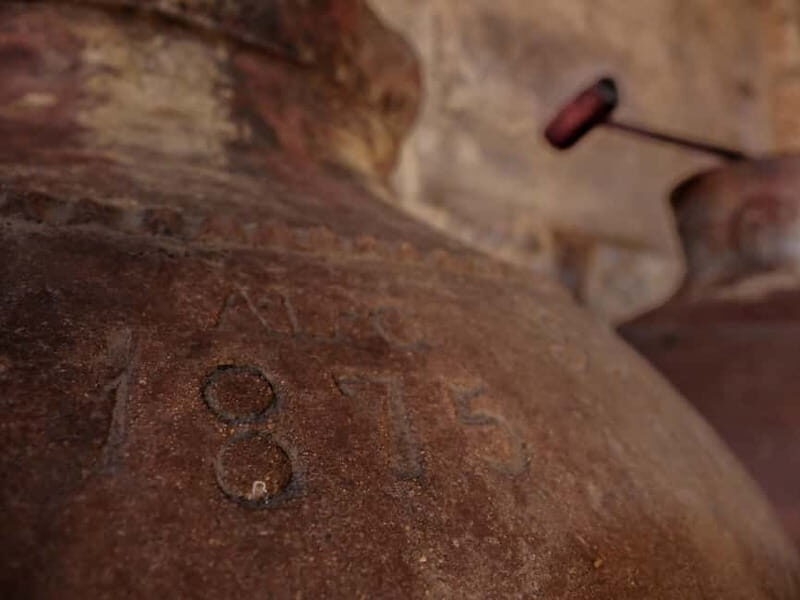
This experience is ideal for travelers who enjoy history, culture, and wine in small doses. If you’re short on time but want a meaningful taste of Portuguese heritage, this tour fits the bill. It’s especially suited for those interested in ancient winemaking techniques or Roman influence, but also for anyone curious about regional traditions beyond the usual tourist fare. Families, couples, or solo travelers looking for an educational, authentic stop will find it rewarding.
Final Thoughts: A Tiny but Rich Window into Portugal’s Past
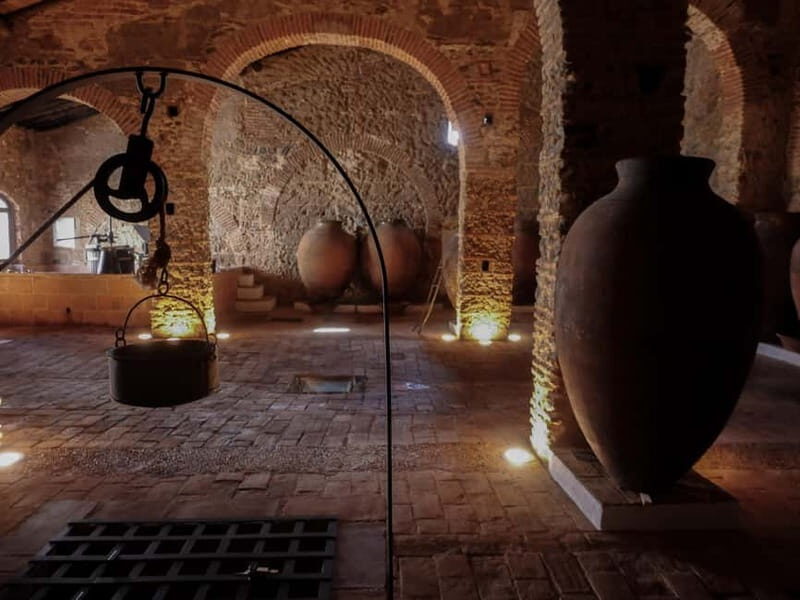
The Cella Vinaria Antiqua guided tour offers a short but impactful journey into the history of winemaking in Portugal. You’re not just tasting wine but experiencing a tradition that dates back centuries—possibly to Roman times—brought to life in a beautifully restored setting. The inclusion of a simple Talha wine tasting adds an authentic flavor that helps you connect more deeply to the region’s culture.
While the tour is brief, the quality of storytelling and the chance to see a living museum makes it stand out. This experience packs historical insight, regional tradition, and a touch of adventure into a compact package, making it well worth considering if you’re exploring the Beja District or looking to diversify your Portugal itinerary.
Who will love it?
If you’re passionate about history, wine, or authentic regional experiences, this tour offers an engaging window into Portugal’s winemaking roots. It’s particularly suited for those wanting a short, informative, and culturally rich activity that complements a broader exploration of the Alentejo region.
FAQ
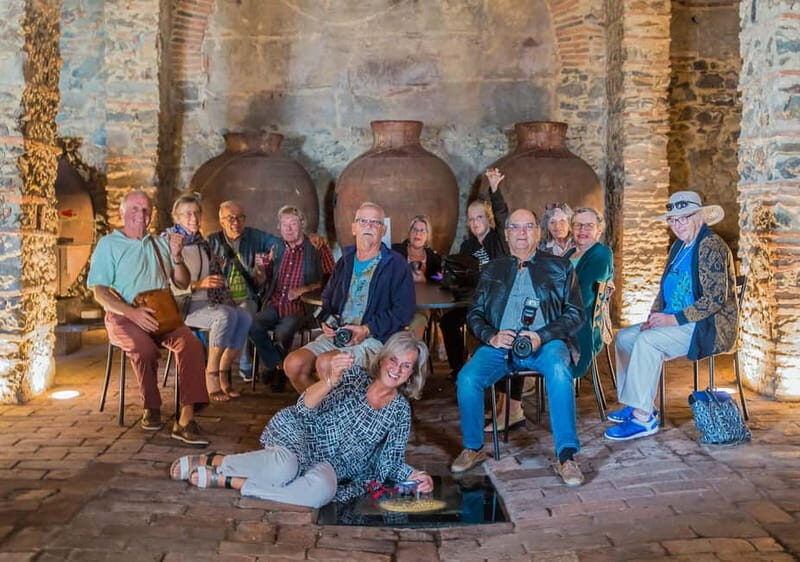
Is the tour suitable for wheelchair users?
Yes, the tour is wheelchair accessible, making it inclusive for all visitors.
How long does the tour last?
The guided component lasts approximately 20 minutes, with the entire experience about 30 minutes including tasting.
What languages are available for the tour?
Guides speak Portuguese, English, and Spanish.
Can I cancel the reservation?
Yes, you can cancel up to 24 hours in advance for a full refund.
Is the tasting included?
Yes, a simple Talha wine tasting is part of the experience.
Do I need to reserve in advance?
Yes, it’s recommended to reserve to secure your spot, especially during busy times.
What is the setting like?
The tour takes place in a centuries-old winery-museum with Roman-inspired architecture and historic objects.
What type of wine will I taste?
You’ll taste a traditional Talha wine, fermented in clay amphorae, offering a distinctive regional flavor.
Is it good value for the price?
Considering the historical and cultural insights, plus the wine tasting, it’s a worthwhile short experience for those interested in regional history and wine.
Who is this tour best suited for?
It’s perfect for travelers interested in history, cultural traditions, or seeking a quick, authentic taste of Portugal’s wine heritage.
This guided tour of the Cella Vinaria Antiqua is a small step into a big tradition—an enriching, authentic detour for anyone interested in the roots of Portuguese winemaking.
You can check availability for your dates here:
